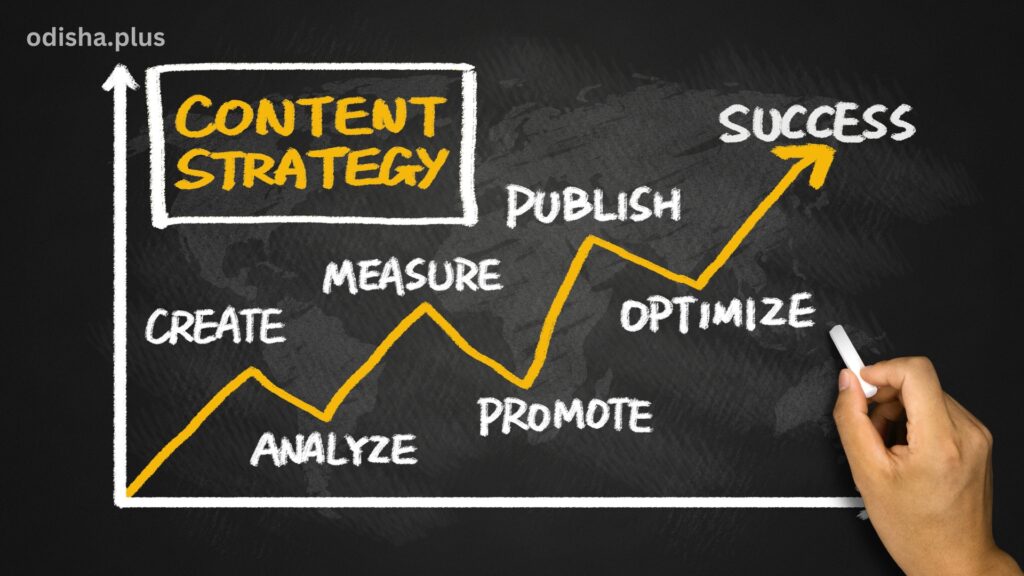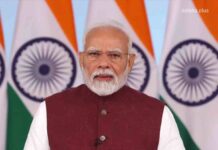OdishaPlus Knowledge Series

In the rapidly evolving field of mass communication, digital media has emerged as a dominant force, reshaping how information is disseminated and how brands engage with audiences.
For mass communication students and media professionals, mastering digital media and marketing strategies is essential for success.
This article explores the types of digital media, the scope and variety of content needed today, and how to develop effective digital marketing strategies.
Types of Digital Media
Digital media encompasses a wide array of platforms and formats, including websites, social media, mobile apps, video-sharing sites, podcasts, and more.
Social media platforms like Facebook, Instagram, Twitter, LinkedIn, and TikTok are particularly influential, offering unique opportunities for content creation and audience engagement.
Mobile apps enhance user interaction by providing tailored experiences, making them indispensable for modern marketing strategies.
Scope and Varieties of Content
The digital landscape demands diverse and high-quality content. Content types include:
Textual Content: Articles, blog posts, social media updates, and emails.
Visual Content: Images, infographics, memes, and illustrations.
Video Content: Short videos, live streams, webinars, and tutorials.
Audio Content: Podcasts, audiobooks, and voice notes.
Interactive Content: Quizzes, polls, surveys, and interactive infographics.
Quality content should be informative, engaging, and tailored to the audience’s preferences and platform’s requirements.
Content Marketing as Part of Digital Marketing
Content marketing is a strategic approach focused on creating and distributing valuable, relevant, and consistent content to attract and retain a clearly defined audience. It involves understanding the target audience’s needs and delivering content that addresses those needs, ultimately driving profitable customer action.
Effective content marketing builds trust and authority, fosters customer loyalty, and supports other digital marketing efforts like SEO, social media marketing, and email campaigns.
Overview of Digital Marketing Strategy
A comprehensive digital marketing strategy includes several key components:
Goal Setting: Define clear, measurable objectives aligned with business goals.
Audience Research: Understand the target audience’s demographics, preferences, and behaviors.
Content Creation: Develop diverse content types tailored to different platforms and audience segments.
Distribution Channels: Identify the most effective digital channels (social media, email, websites, etc.) for content dissemination.
Engagement and Interaction: Foster two-way communication with the audience through comments, direct messages, and interactive content.
Analytics and Optimization: Monitor performance metrics and adjust strategies based on data insights.
Popular Digital Mediums and Platforms
Globally, several digital platforms dominate the marketing landscape:
Social Media: Facebook, Instagram, Twitter, LinkedIn, TikTok.
Video Sharing: YouTube, Vimeo.
Messaging Apps: WhatsApp, Messenger, WeChat.
Blogging Platforms: WordPress, Medium.
Search Engines: Google, Bing.
Digital Media Tools for Professionals
Journalists, communication specialists, and branding experts should be proficient with various digital tools:
Content Management Systems (CMS): WordPress, Drupal.
Social Media Management Tools: Hootsuite, Buffer etc.
Analytics Tools: Google Analytics, SEMrush etc.
Design Tools: Canva, Adobe Creative Suite etc.
Email Marketing Platforms: MailChimp, Constant Contact etc.
Preparing for Effective Content Ideation and Curation
To excel in content ideation and curation, media professionals should:
Stay Informed: Keep up with industry trends, news, and emerging technologies.
Know the Audience: Regularly update audience personas and preferences.
Be Creative: Experiment with different content formats and styles.
Collaborate: Work with designers, writers, and marketers to produce high-quality content.
Analyze and Learn: Use analytics to understand what works and continuously refine strategies.
Fundamentals of a Digital Media Campaign
A successful digital media campaign involves:
Planning: Set objectives, budget, and timelines.
Content Development: Create compelling content tailored to the campaign goals.
Distribution: Choose the right platforms for maximum reach.
Engagement: Interact with the audience and encourage participation.
Monitoring: Track performance using analytics tools.
Optimization: Adjust strategies based on feedback and data insights.
Thus, content development in digital media and marketing strategy is a multifaceted endeavor requiring creativity, strategic thinking, and continuous learning. By mastering the various aspects of digital media and utilizing the right tools, media professionals can effectively engage audiences and drive meaningful results.
AI-Based Tools in Journalism and Mass Communication
In the contemporary landscape of journalism and mass communication, AI-based tools have become indispensable. These tools enhance efficiency, accuracy, and creativity, allowing media professionals to focus on more strategic and high-value tasks.
AI-driven platforms such as Grammarly and QuillBot assist in writing and editing, ensuring error-free and polished content. Tools like Wordsmith and Automated Insights use natural language processing to generate automated reports and articles, significantly reducing the time required for routine reporting tasks.
Additionally, AI-powered analytics tools like Google Analytics and Sprinklr provide deep insights into audience behavior and content performance, enabling journalists and communication specialists to tailor their strategies effectively.
AI’s Role in Digital Content Creation and Marketing Strategy
AI’s capabilities extend beyond content creation to the strategic management of digital marketing campaigns.
For journalists and newsroom managers, AI tools like Trint and Otter.ai automate transcription services, making interviews and speeches easily accessible for content creation.
AI-powered social media management tools such as Hootsuite Insights and BuzzSumo help identify trending topics and optimize content for maximum engagement.
For communication specialists, AI can personalize marketing efforts through tools like HubSpot and Marketo, which use machine learning algorithms to segment audiences and deliver targeted messages.
By automating repetitive tasks, providing actionable insights, and enhancing content personalization, AI enables media professionals to create compelling content and execute successful digital marketing strategies with greater precision and efficiency.
(This article has been developed with the assistance of AI tools. Please verify the accuracy of the information before applying it in any practical context.)


























